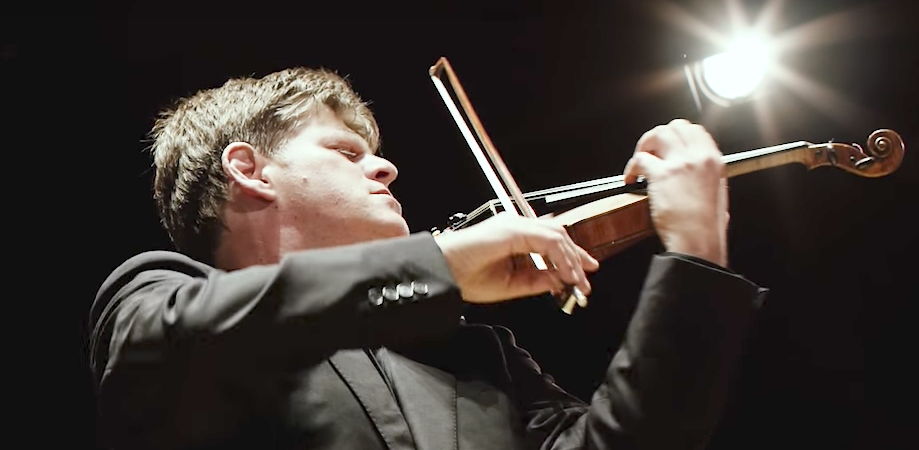The world-famous Israeli violin player Guy Braunstein was the concertmaster of the Berlin Philharmonic for 13 years. He is a real experimenter playing well-known musical pieces with unexpected twists. He is working together with the Budapest Festival Orchestra, since he considers it the most special orchestra of the world. He is the soloist of the April 22&23 concerts of the BFO in the Budapest Congress Center.
We all know that you are famous for adding new elements to the most well-known pieces you play. Are you planning something similar with Mendelssohn’s Violin Concerto in E minor at your Budapest concerts in April?
Guy Braunstein: It is true that sometimes I add my new cadences in other concerts, but not in this case, when I play Mendelssohn. I like his cadence the way it is, I don’t feel any necessity to change it a bit. I admit that I tried once, but I rather got back to the original form.
How do you feel about Mendelssohn and especially about this wonderful Romantic piece?
G. B.: He brought a new style to the music world. It is very important to know that his Jewish roots made a great influence on his music. He belonged to a very famous Jewish family and he was bringing Jewish elements to the Germanic style of playing music, what first of all came from Beethoven. He was very original. What he did in music, didn’t sound like anything before. It didn’t sound like Beethoven, Schubert, or anyone else. He was genuine and fresh.
As a soloist how do you get on with Mendelssohn’s beginning of the Violin Concerto, where the soloist starts right away, before the orchestra. It is unusual in violin concertos.
G. B.: Yes, this was also unique in his time. There were some funny stories about that. Like for example great violinists like Jasha Heifetz or Fritz Kreisler always became nervous about the beginning of that concerto. They said that Mendelssohn wanted to shock everybody with this upbeat, including the soloist.
Are you shocked by this beginning as well?
G. B.: No, I like it very much. As I feel the whole music piece close to me.
When I called you yesterday, you were heading to Aix-en-Provence to play with Iván Fischer and the BFO as a concertmaster. Do I know well that since you left the Berlin Philharmonic ten years ago you only accepted the invitation of the BFO?
G. B.: Yes, that is the truth.
What is the explanation for that?
G. B.: It’s simple. I think this is the most special orchestra in the world. I don’t like to use sport metaphors, but I strongly believe that the Budapest Festival Orchestra is the one which does the purest music performing of all I know in the whole world.
In the upcoming concerts in Budapest, you will be the soloist and your Israeli colleague, Daniel Oren will conduct the BFO. However, you are just as famous as a conductor as a soloist. Don’t you feel sometimes during a concert that you would do it differently?
G. B.: Although Daniel Oren is my native colleague, I never met him. Of course, I know a lot about him (I think I went to school with his sister), but we never played together. He is a very well-known, good musician, so I am sure we will get along well. But your question is about being a conductor as well as a soloist. Well, I like to cook a lot in my kitchen for my wife and my children. But I also enjoy sometimes to go to somebody else’s house and taste what he has cooked. That is the case with conducting as well.
Does it make sense to ask you whether you prefer violin to conducting, or the other way around?
G. B.: I cannot answer this question because there are a few things I can never give away. That is conducting, playing the violin and playing in my string quartet. I cannot take apart these activities because these all belong to my personality.
